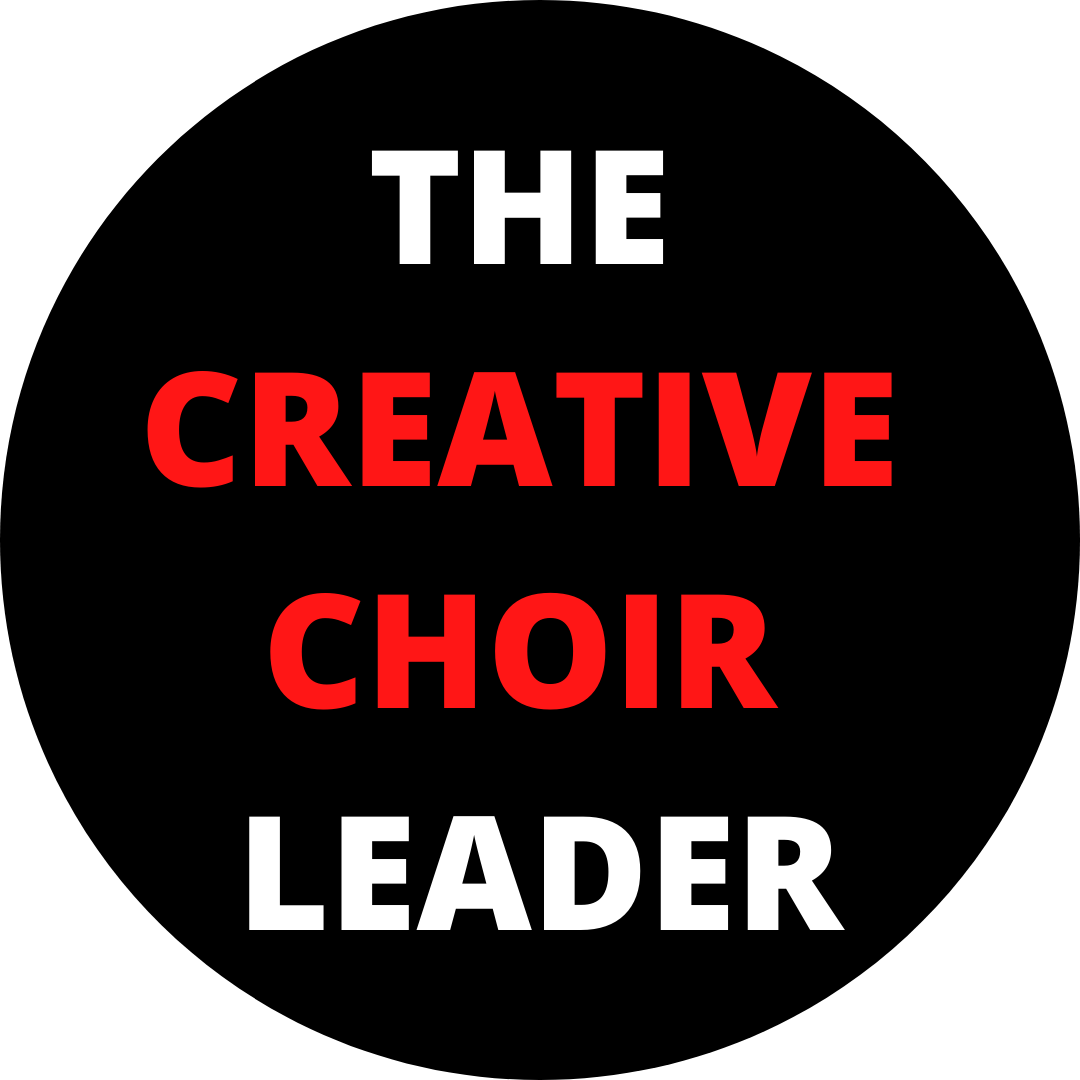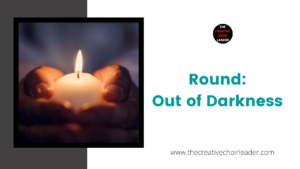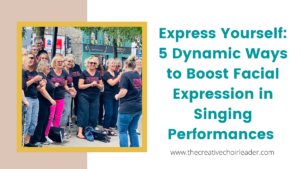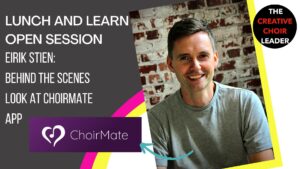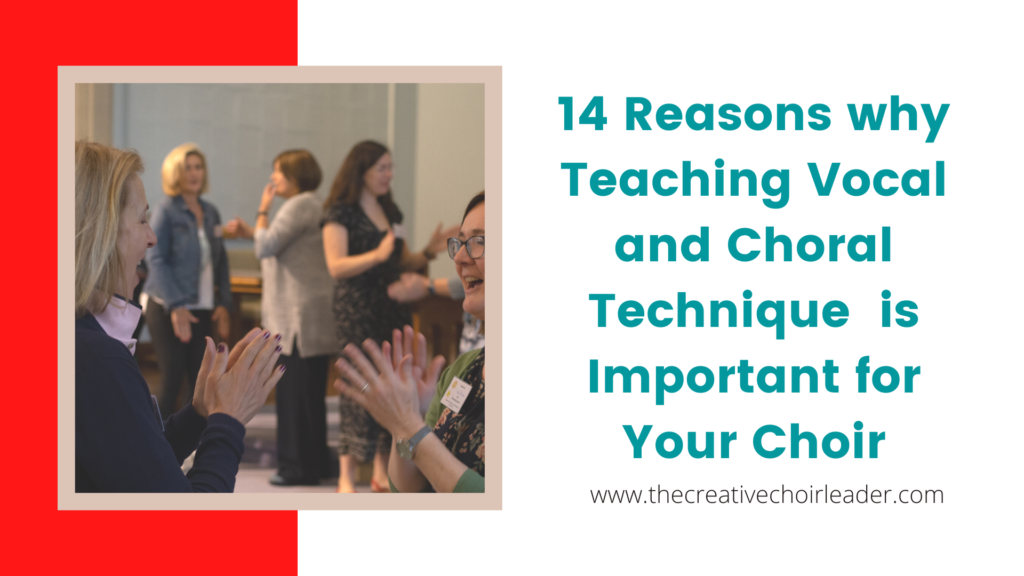
So you’re probably reading this blog because you have a community choir. Or maybe you have a school choir squeezed into your lunch break.
And when you read the title you might be thinking that you don’t really have time to teach a lot of technique to your singers. Or maybe you think it’s just not a priority to your group – you’re there to have fun after all, not singing up and down lots of scales.
So let me share a story with you…
I’ve just started yoga classes. It was billed as ‘yoga for the inflexible’. I’m in, I said! This activity is perfect for me because I’ve never really done yoga before and I’m learning.
Our teacher spends time not only teaching us the moves, but explains at a really basic level why and how they work. She shares the benefits with us. For example, she takes time to show us how to position our feet before attemping a balancing position.
Our teacher also gives us simpler alternatives if we are finding parts of a position tricky. She sometimes demonstrates what is possible if we keep practising over time, much to our amusement at the seemlingly impossibility of it.
The thing I love the most is that she says, “even if you do this very simple first step, you will still feel the benefits.”
So she takes the positions, breaks them down into how to do them and all the while, she is aware of us, the people in the room – suggesting modifications as she teaches.
Do we every really feel like she is teaching a lot of ‘technique’? No she is just teaching us yoga. But of course, as a teacher myself, I know that technique is at the core.
Efficient choir leaders will do the same.
How many of you have come from a background of ‘falling into’ the role of leading the choir? You might not even have that much singing training. I certainly fit this description in my early days! It used to leave me feeling a little unsure about how to introduce technique to my choir, or even if I knew the ‘right’ way to teach it.
However, after leading all sorts of choirs over the past 30 years, I have come to the conclusion that regardless of my view about my own technical ability and knowledge….teaching singing and choral technique to your group is not only fun but it’s really important. I owe it to my singers.
Our role is to help our singers do the best job they can with a song and to have fun along the way!
And I would like to preface this by saying…
You are in control of how, how much and how often you explore technique with your singers. I’m saying this because it really depends on the songs you are singing and the length of your choir sessions.
For example, if you only have 25 minutes with a group of teenagers in their lunch break, you’re going to focus less on technique that a choir with 2 hours. Although it is always possible to be sneaky and find ways to squeeze in activities to help them sing the songs better. Especially since most exercises only take 30-60 secs!
And please, choir leaders, don’t pass this core teaching onto someone else! YOU can teach it in YOUR sessions, relating to YOUR songs, knowing the weaknesses and strengths of the people in YOUR choir room.
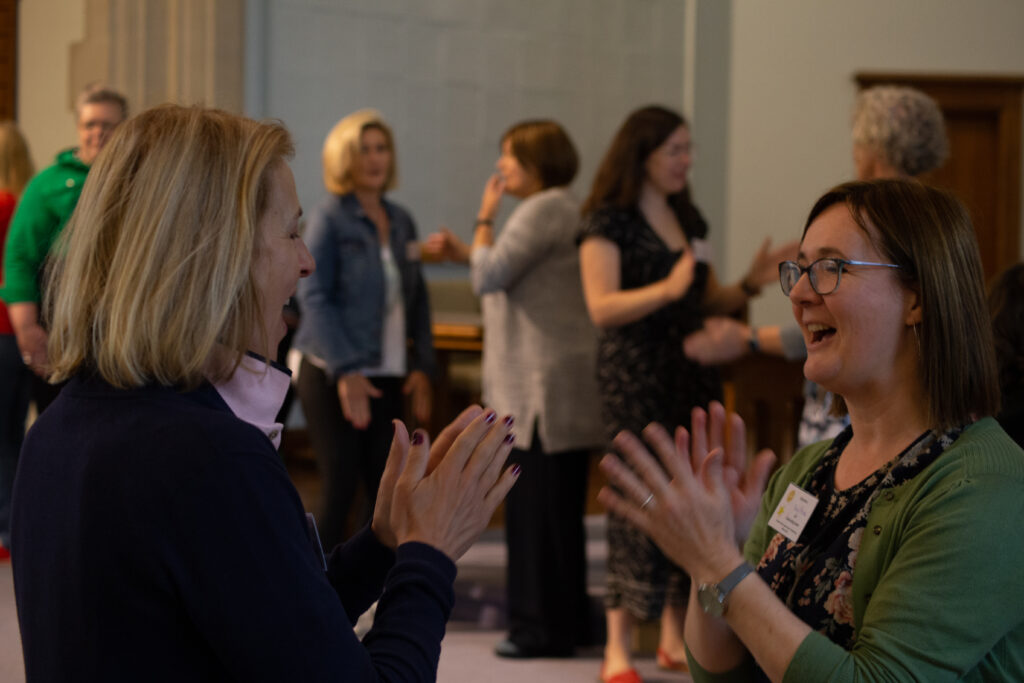
So here are 14 reasons why teaching vocal and choral technique is important for your choir:
- It promotes healthy voice use.
- It can help your singers sing with ease as they learn a new skill
- Your singers can gain technical agility
- Exercises can be used to warm up the voice ready for singing
- It can help your singers build their choral singing skills such as blend, peripheral listening, intonation
- It can help your singers sing in different styles. Yes, every style has its own technique to produce the sound.
- It can help your singers release their own natural singing voice.
- It can give your sessions variety
- You empower your singers to sing better and be aware of the process.
- You can free your singers from self limiting beliefs they might come to the session with eg. “I can’t sing” “I can’t sing high”
- Your choir can feel pride in their progress as they hear the overall sound improve. And the fact they can hear it, might be progress in itself!
- Your audience can enjoy the musicality of your choir.
- Your audiences will connect with your music on a higher emotional and intellectual level as your performance improves.
- As you guide your singers from being beginners to more advanced you have the power to uplift and transform lives.
So that might have got a bit deep at the end. But I really believe this is true.
And the trick, my fellow choir leaders, is the ability to decide what is appropriate and best for YOUR choir. This is in YOUR hands. You do have time.
Furthermore, if you haven’t got a clue where to start…buy a book, go on a course, join The Inspire Club. LEARN!!! Learning is so accessible these days, that there really is no excuse for not knowing the ‘how’ about our craft of leading a choir.

Beth Morgan has worked as a secondary music educator for 30 years, performing with her school choirs within the school community right through to international competitions. In 2016, she moved into the adult community choir sector, becoming the Musical Director for the Bristol Military Wives Choir.
Since then Beth has founded The Great Day Choir, a feel good daytime ladies choir, who have raised £1000s for charity, based across Bristol and Bath, and includes an accessible child friendly choir, Bella Mamas.
She has done training with UNiversity of Queensland, Kodaly, Vocal Process and is about to start the Inspiration Course for Jazz/Pop Directing at Royal Academy of Denmark.
During the pandemic, Beth founded The Creative Choir Leader Group, which has grown to become a global online community of nearly 1000 choir leaders and features an online professional support membership, The Inspire Club for those who want to change lives in their community through inspiring choir leading. This membership has seen Beth host online training sessions and collaborate with some of the world’s leading choral arrangers and conductors including Deke Sharon, John Rutter, Bob Chilcott, Kirby Shaw, Alexander L’Estrange, Lin Marsh, Anu Omideyi, Joanna Tomlinson, Stuart Overington, Mary Bourne, Abi Moore, Matthew Finch, Emily Foulkes and Debbie Warren.
